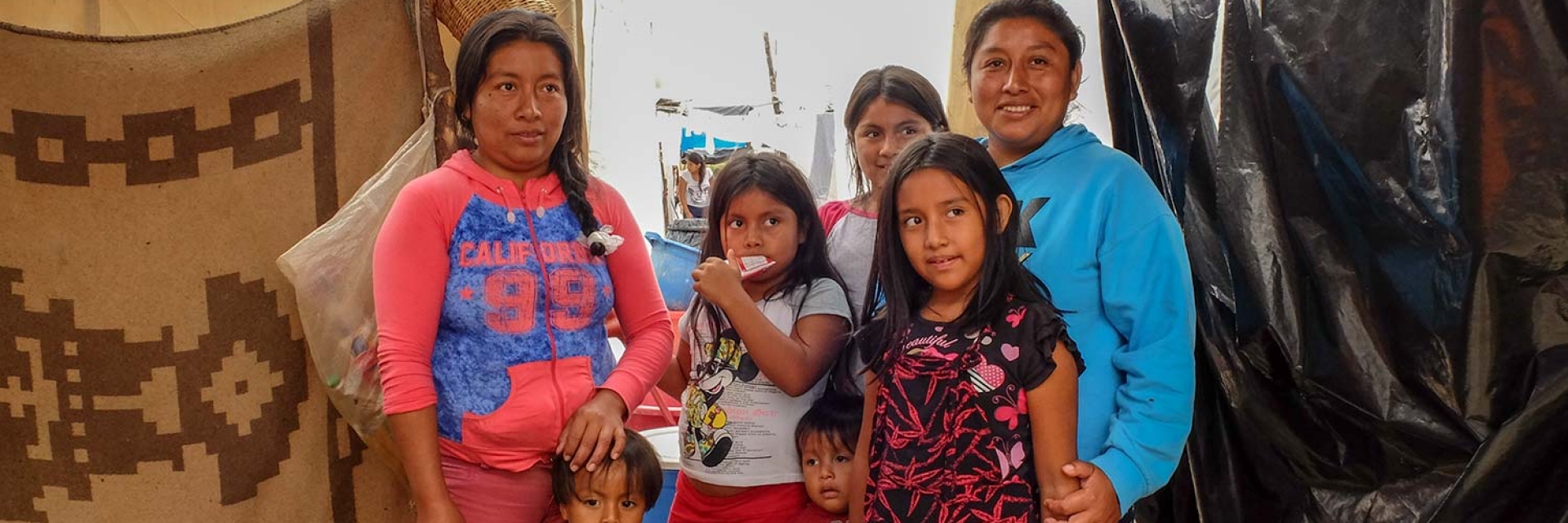
María Verónica Valverde Zapata is now registered as the head of her household, meaning she can access supplies to help her family recover from devastating floods that hit Peru. Photo: Save the Children Canada
"We can also decide”: Peruvian women take charge of their disaster recovery
When María Verónica Valverde Zapata went to pick up some much needed supplies to help her and her family recover from devastating floods that forced them from their home, she was turned away.
“When I went to get (a voucher), we could not claim it, even though we said that our spouses were working. It had to be (the one who was registered),” says the mother of three.
In March 2017, heavy rains caused massive flooding across Peru. Verónica and her family lost their homes and all their belongings after the rains caused the dam upriver from their town to rupture. They fled to a makeshift camp, which they currently call home. Upon arrival, families registered with the government for assistance. However, as men began returning to work, women took on the sole responsibility of managing their households but couldn’t access the aid they needed.
Verónica’s husband is away from the house two weeks at a time for work, and is only at home for a day or so before he must return and earn an income. That means Verónica has to care for their children and make decisions at home. However, on the assistance registration list, only her husband was listed as the head of household, meaning he was the only one who could pick up the supplies.
When Save the Children began providing emergency aid to survivors, they started hearing similar stories to Verónica’s.
Staff from Save the Children visited the makeshift camp where more than 500 families had sought safety after the floods to address this situation. When they started, 41% of the households had females listed as the head of family. After their consultation process, that number jumped to 73%.
“We can also decide. I believe that we both, men and women, can assume our responsibilities,” said Verónica.
By changing the names on the government registration list, families were able to access supplies such as food, kitchen supplies and hygiene kits more easily, giving them the ability to rebuild their lives. They were also able to take part in training sessions and sign up their children for activities in child friendly spaces, where staff from Save the Children provided vulnerable children support.